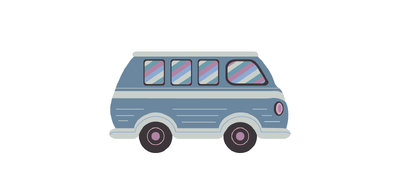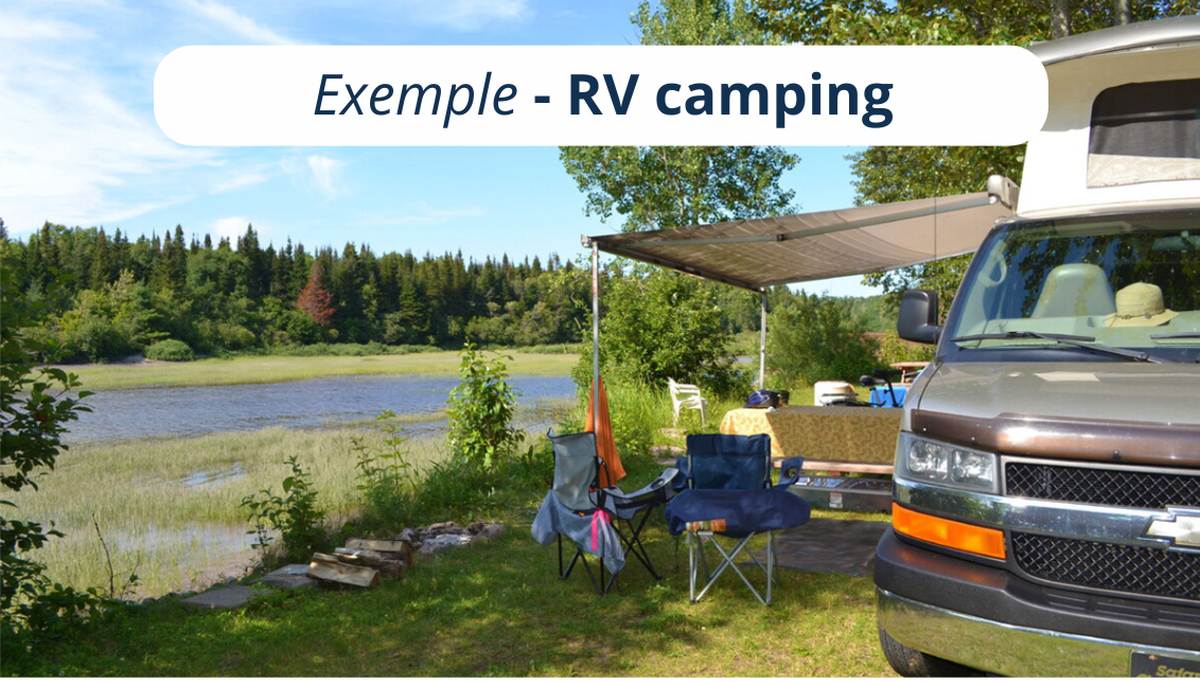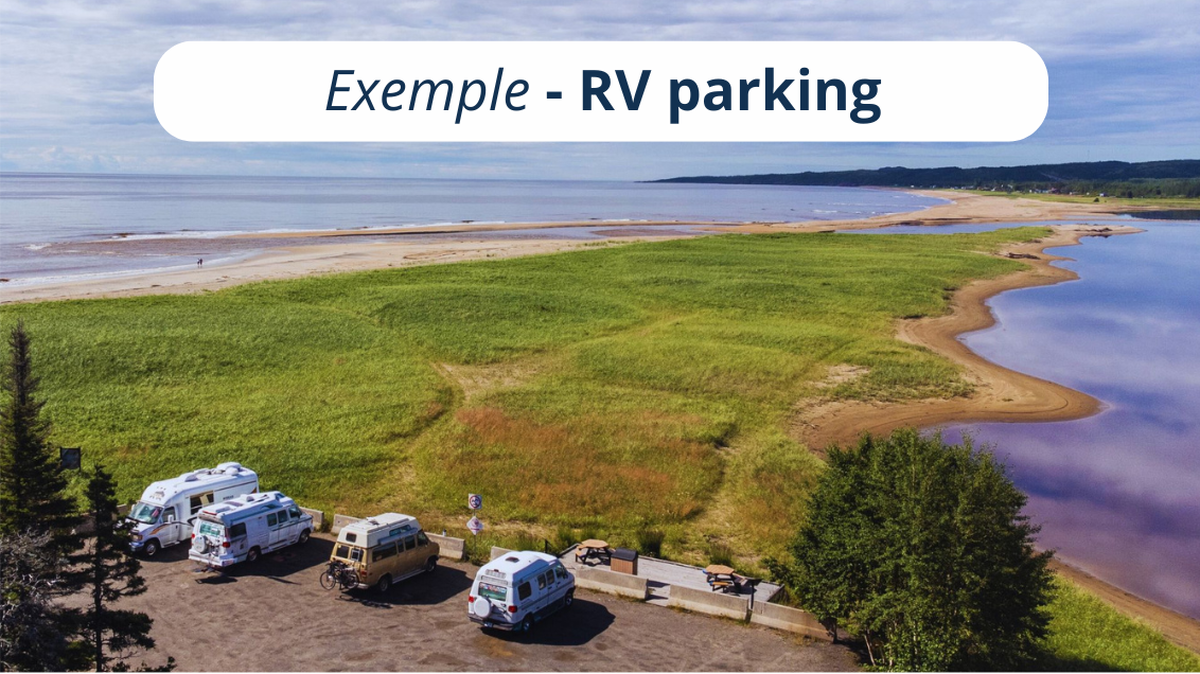Planning your next road trip in your camper van or RV?
The Côte-Nord region has everything you need, with outdoor and family-friendly activities. Plus, many towns and businesses offer spots for vanlife.
Come and explore them!
Get ready for your ultimate vanlife road trip
Looking for authorized overnight spots?
Join Arrêt nuitée VR for free and start exploring!

Understanding the Difference Between Camping and Parking
Most areas where vanlife is permitted are public parking lots or designated spaces. To ensure respectful coexistence with locals and other travelers, it's important to understand the — very simple — difference between camping and parking.
Camping
Camping means setting up as if you were at a campground: using leveling blocks, extending the awning, setting up tables, chairs, a BBQ, or any other outdoor equipment. In short, your setup extends beyond just your vehicle.
Parking
On the other hand, parking means staying low-key: no awning, no outdoor furniture, no clotheslines — nothing should extend beyond the vehicle. The wheels must remain directly on the ground, without stabilizers or leveling blocks. Since these areas often lack restroom facilities, self-contained vehicles (with onboard toilets) are strongly recommended.
For Maximum Comfort
If you prefer settling in one place for a while and having amenities nearby, we recommend booking a spot at one of our many campgrounds. Most of them offer beautiful, spacious sites — often surrounded by nature and close to the beach or the river — perfect for making the most of your stay!


Le bon Vanlifer
Par Go-Van
Respect signage
Follow the rules specific to each location (and no, the absence of a sign doesn't mean you're invited to stay overnight!).
Respect the space
Keep your setup discreet and minimal. Leave no trace. If trash bins are full, pack out your waste and dispose of it at your next stop.
Respect others
You're not alone—share the space and be mindful of noise levels (generators? No thanks!).
Respect waterways
Never dump grey or black water into rivers or lakes, and don't wash your dishes in them. Use designated dump stations.
Respect ecosystems
Avoid touching plants and animals. Don't feed wildlife (seriously—nothing at all!), and don't disturb their natural habitat.
Respect fire safety
Be aware of current fire hazard levels. If fires are allowed, make sure they're fully extinguished before leaving.
Respect the locals
Always contribute to positive relationships with the residents of the areas you visit.
